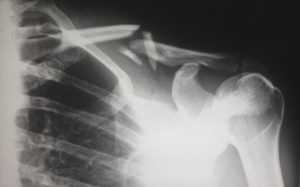How does a Vermont criminal jury know what the law is?
Vermont criminal jury instructions are read to jurors before they deliberate on whether to find a criminal defendant “not guilty” or “guilty.” Vermont jury instructions define the law and the elements that must be found by jurors to find a defendant guilty beyond a reasonable doubt.
There is a committee that helps to keep the Vermont Model Jury Instructions up to date with case law developments. The committee is comprised of Vermont Superior Court Judges, Vermont criminal defense attorneys, and prosecutors. You can read about the committee and the role of the Vermont Model Jury Instructions here.
Let’s use the example of a Vermont DUI charge. The Vermont Model Jury Instructions are below. For a jury to convict someone under this statute it must find that the named defendant, operated (or attempted to operate or was in actual physical control) of a vehicle, on a highway, and that at the time the defendant was under the influence of alcohol. The jury instructions further break down the elements for clarity and define important terms, such as what it means to “be under the influence of alcohol.” In Vermont, a person is under the influence of alcohol “if the person’s full mental or physical abilities are impaired or affected in the slightest degree by alcohol.” This is a broad standard and does not require any particular blood alcohol content. In theory (and in practice in certain Vermont counties), drivers are routinely charged with DUI under this statute despite having a blood alcohol content less than .08.
Jurors might not agree that a defendant should be criminally responsible if his BAC was under .08, but they have an obligation to faithfully apply the law as instructed.
Sometimes, if jurors do not agree with the law they may engage in a process called jury nullification. Jury nullification is not an official part of the criminal process and Vermont criminal defense attorneys cannot directly advocate for it during trial. However, jury nullification does happen. Jury nullification generally occurs when members of a criminal trial jury believe that a defendant is guilty, but choose to acquit the defendant anyway because the jurors also believe that the law itself is unjust, that the prosecutor has misapplied the law in the defendant’s case, or that the potential punishment for breaking the law is too harsh. Jury nullification is very rare, but is an interesting concept.
The Vermont Model Jury Instructions for DUI: Under the Influence are below.
DUI: UNDER INFLUENCE OF ALCOHOL — 23 V.S.A. § 1201(a)(2)
The State has charged (Def)_______________ with [operating] [attempting to operate] [being in actual physical control of] a vehicle while [he] [she] was under the influence of alcohol, as follows:
[Read the charge.]
Every crime is made up of essential elements. Before (Def)_______________ can be found guilty of the charge, the State must have proven each of the essential elements beyond a reasonable doubt. In this case, the essential elements are that on the date and at the place alleged,
(1) (Def)_______________;
(2) [operated] [attempted to operate] [was in actual physical control of] a vehicle;
(3) on a highway; and
(4) at the time, [he] [she] was under the influence of alcohol.
The first essential element is that (Def)_______________ is the person who committed the alleged acts.
The second essential element is that (Def)_______________ [operated] [attempted to operate] [was in actual physical control of] a vehicle.
[The term operate, as applied to motor vehicles, includes driving, and it also includes an attempt to operate. The word operate covers all matters and things connected with the presence and use of motor vehicles on the highway, whether they are in motion or at rest. Operation may be shown by a person sitting behind the wheel of a motor vehicle, with the engine running. It may also be shown by a person attempting to move the vehicle, whether or not the engine is running.]
[An attempt to operate is included within the definition of operate. The State must have proven an open, physical act by (Def)_______________ coupled with an intent to operate the vehicle. You must distinguish between mere preparation and the actual start of the criminal conduct. An act is sufficient to be an attempt to commit the offense if the act is wilful and knowing, and if it progresses far enough to be the beginning of the crime. The act must be part of a series of events which would lead to the completion of the crime, if not interrupted. An act is done wilfully if it is done on purpose, and not inadvertently, because of mistake, or by accident. Here State alleges that (Def)_______________ attempted to operate the vehicle, by (specific acts)_______________.]
[The term actual physical control means that (Def)_______________ was in a position to regulate the movement of the vehicle. Actual physical control may have existed whether or not the vehicle was moving, and whether or not the engine was running, if (Def)_______________ had the immediate ability to operate the vehicle.]
The term vehicle includes all vehicles propelled or drawn by power other than muscular power [except tractors used entirely for work on the farm, vehicles running only upon stationary rails or tracks, motorized highway building equipment, road making appliances, snowmobiles, all-terrain vehicles or implements of husbandry, or tracked vehicles].
The third essential element is that the activity took place on a highway. The term highway is defined to include all parts of any roadway, street, bridge, culvert, [square, fairground] or other place open temporarily or permanently to public or general circulation of vehicles [and it also includes a way laid out under authority of law].
The last essential element is that, at the time, (Def)_______________ was under the influence of alcohol.
The term alcohol includes liquor, beer, wine, or any combination of those beverages.
A person is under the influence of alcohol if the person’s full mental or physical abilities are impaired or affected in the slightest degree by alcohol. An influence of alcohol can be proven by evidence of observable behavior, indicating that (Def)_______________ had consumed alcohol and ceased to retain full control, even to the slightest degree, over the faculties of mind and body.
You may consider testimony by any witness who personally observed (Def)_______________. Relevant observations may include [his] [her] manner of driving or walking, [his] [her] speech, the condition of [his] [her] eyes, the odor of [his] [her] breath, and any other physical appearance or conduct which would reasonably tend to prove [his] [her] condition. The witness making the observations need not have any special scientific training. A layperson may testify about his or her observations, and the witness may express an opinion about the state of (Def)_______________’s sobriety. It is up to you to judge the weight to be given any such testimony.
[If there is evidence of a breath or blood analysis, add all or parts of CR30-231.]
[The State need not have proven that (Def)_______________ had any specific alcohol concentration at the time of operation. Alcohol concentration evidence might or might not help you to determine whether the State has proven beyond a reasonable doubt that (Def)_______________ was under the influence of alcohol at the time of operating a motor vehicle.]
All of the elements of the offense must have been present at the same time. If the State has not proven each of the essential elements of the charge beyond a reasonable doubt, then you must find (Def)_______________ not guilty. However, if the State has proven all of the essential elements beyond a reasonable doubt, you must return a verdict of guilty.








